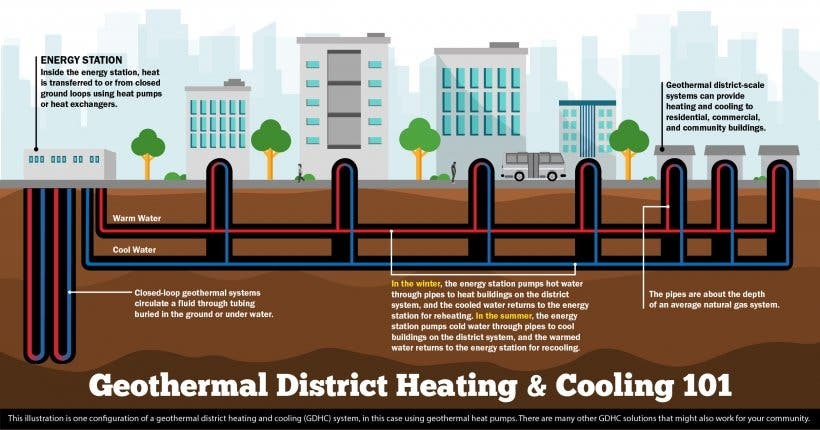New Analysis: Geothermal Heat Pumps Key Opportunity in Switch to Clean Energy
Introduction
As the world transitions to a cleaner, more sustainable energy future, geothermal heat pumps are emerging as a key opportunity to reduce greenhouse gas emissions and meet growing energy demands. A new analysis from a leading research firm has highlighted the potential of geothermal heat pumps to play a significant role in the switch to clean energy.
Geothermal Heat Pumps: A Primer
Geothermal heat pumps are a type of heating and cooling system that uses the natural temperature of the earth to provide warmth in the winter and cooling in the summer. They work by circulating a fluid through underground pipes to transfer heat from the earth to a building, providing a consistent and reliable source of energy.
Benefits of Geothermal Heat Pumps
The analysis highlights several benefits of geothermal heat pumps, including:
*
Zero Emissions
– Geothermal heat pumps do not burn fossil fuels, making them a zero-emission source of energy.
*
High Efficiency
– Geothermal heat pumps can achieve efficiency rates of up to 400%, compared to traditional HVAC systems which typically have efficiency rates of around 3-4%.
*
Reliability
– Geothermal heat pumps are not dependent on weather conditions, making them a reliable source of energy.
*
Low Maintenance
– Geothermal heat pumps have few moving parts, reducing maintenance costs and increasing lifespan.
Key Opportunities for Geothermal Heat Pumps
The analysis identifies several key opportunities for geothermal heat pumps, including:
*
New Construction
– Geothermal heat pumps can be integrated into new construction projects, providing a cost-effective and efficient solution for heating and cooling.
*
– Geothermal heat pumps can be installed in existing buildings, reducing energy consumption and emissions.
*
– Geothermal heat pumps can be used to create district heating and cooling systems, providing a reliable and efficient source of energy for entire neighborhoods.
Conclusion
The analysis highlights the significant potential of geothermal heat pumps to play a key role in the switch to clean energy. With their zero emissions, high efficiency, reliability, and low maintenance, geothermal heat pumps offer a cost-effective and efficient solution for heating and cooling. As the world continues to transition to a cleaner, more sustainable energy future, geothermal heat pumps are an opportunity that should not be overlooked.
FAQs
Q: How do geothermal heat pumps work?
A: Geothermal heat pumps work by circulating a fluid through underground pipes to transfer heat from the earth to a building.
Q: Are geothermal heat pumps expensive?
A: While the initial cost of installing a geothermal heat pump system can be higher than traditional HVAC systems, the long-term savings and benefits make it a cost-effective solution.
Q: Can geothermal heat pumps be used in areas with cold climates?
A: Yes, geothermal heat pumps can be used in areas with cold climates. They can provide both heating and cooling, making them a reliable source of energy year-round.
Q: How long do geothermal heat pumps last?
A: Geothermal heat pumps can last for 20-30 years or more, making them a long-term solution for heating and cooling.







